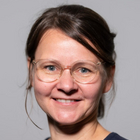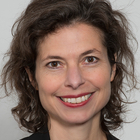International Day of Women and Girls in Science
How we can raise the profile of female experts
Dick, Eva / Tatjana ReiberThe Current Column (2020)
Bonn: German Development Institute / Deutsches Institut für Entwicklungspolitik (DIE), (The Current Column of 10 February)
Let’s talk about manels, that is, events with all male speakers. They are representative of a problem in the scientific world and within society. Having analysed the gender of speakers at over 20 high-profile European conferences between 2012 and 2017, Open Society Foundations found that only 26 per cent of them were women. Studies of the active participation of women at (natural) science conferences and global comparisons yield similar findings: Women rarely account for more than one third of panellists and speakers, and this proportion is only increasing very slowly, and even decreasing in certain disciplines.
With the International Day of Women and Girls in Science coming up on 11 February, this is a woeful state of affairs. Like target 5.5 of the 2030 Agenda for Sustainable Development, the day is intended to help boost the active participation of women in societal life and improve equal opportunities in access to leadership positions. It is particularly focused on increasing the presence of women and girls in education and the (natural) sciences. Otherwise, this will result in them facing sustained disadvantage on other fronts: As things stand, women often work in more poorly paid jobs and earn a global average of 20 per cent less than men. Just 24 per cent of all parliamentarians were women in 2018.
It is highly plausible that the lack of visibility of female experts in high-profile situations, such as panel discussions, is helping to perpetuate notions of male superiority. If there are not enough girls and women to assume influential roles and take up positions of responsibility, then this also reinforces existing inequalities (of opportunity). The limited presence of women and other disadvantaged groups is resulting in a failure to take account of a large variety of perspectives in the public discourse. This then limits the scope for finding solutions to complex problems.
There are various reasons why women are under-represented at events. Event organisers often bemoan the fact that the invited female experts were unavailable, that they had difficulty finding a woman with expertise in the topic area in question or that the female participants cancelled at last minute.
This is usually the result of structural barriers. Female scientists hold fewer management positions than their male colleagues. If event coordinators search for potential participants by title and role, then the number of available experts is automatically reduced. Organisers frequently limit themselves to their familiar networks when looking for female experts, networks which are often male-dominated. Women are more likely to work part-time and are involved to a greater extent than men in family tasks. Finally, women are also more reluctant to accept invitations to speak on topics that are vaguely formulated or that they perceive as not falling within their core area of work.
For institutions, organisers and individuals, there are a number of different starting points when it comes to increasing the public presence of female scientists. Institutions can make gender diversity at events one of their priorities and communicate this internally and to the outside world. Self-imposed quotas and their regular review are one tool in this regard, as are training courses that raise awareness of diversity issues. Managers can shape a culture of gender equality by committing to no longer participating in manels. Donor institutions can create incentives or conditions to ensure that consideration is given to both female and male perspectives.
Event organisers should begin to plan at an early stage and make the event framework as family-friendly as possible. This applies to aspects such as the time schedule and childcare arrangements. It is also important to actively seek to attract female experts. In order for organisers to find female scientists outside of their own networks, it would help to ask a wide range of people for recommendations and to use special databases. Discussions with colleagues at the German Development Institute / Deutsches Institut für Entwicklungspolitik (DIE) indicate that female experts are more likely to accept an invitation if it is clear why they have been invited, what the event objective is and what the schedule looks like. Furthermore, it is not enough to invite just one woman, as this would give her the extremely thankless task of being the “token woman”. The role of a professional moderator who involves all participants equally in the discussion is also often underestimated.
Even individuals can initiate change. Awareness of the topic could be raised by invited female experts asking about the gender balance of the event and emphasising the importance they attach to a mixed line-up. Men could refuse to participate in all male events. Upon receiving invitations to events, established scientists could recommend younger colleagues and thereby give them an opportunity to enhance their presentation skills.
There are certainly many different ways of raising the profile of female scientists. Let's make use of them all, not least in order to exploit the innovative potential of diverse perspectives and find better solutions to the issues facing us in future.
A short video (1:14 min) is also available for this column. You can view it here


